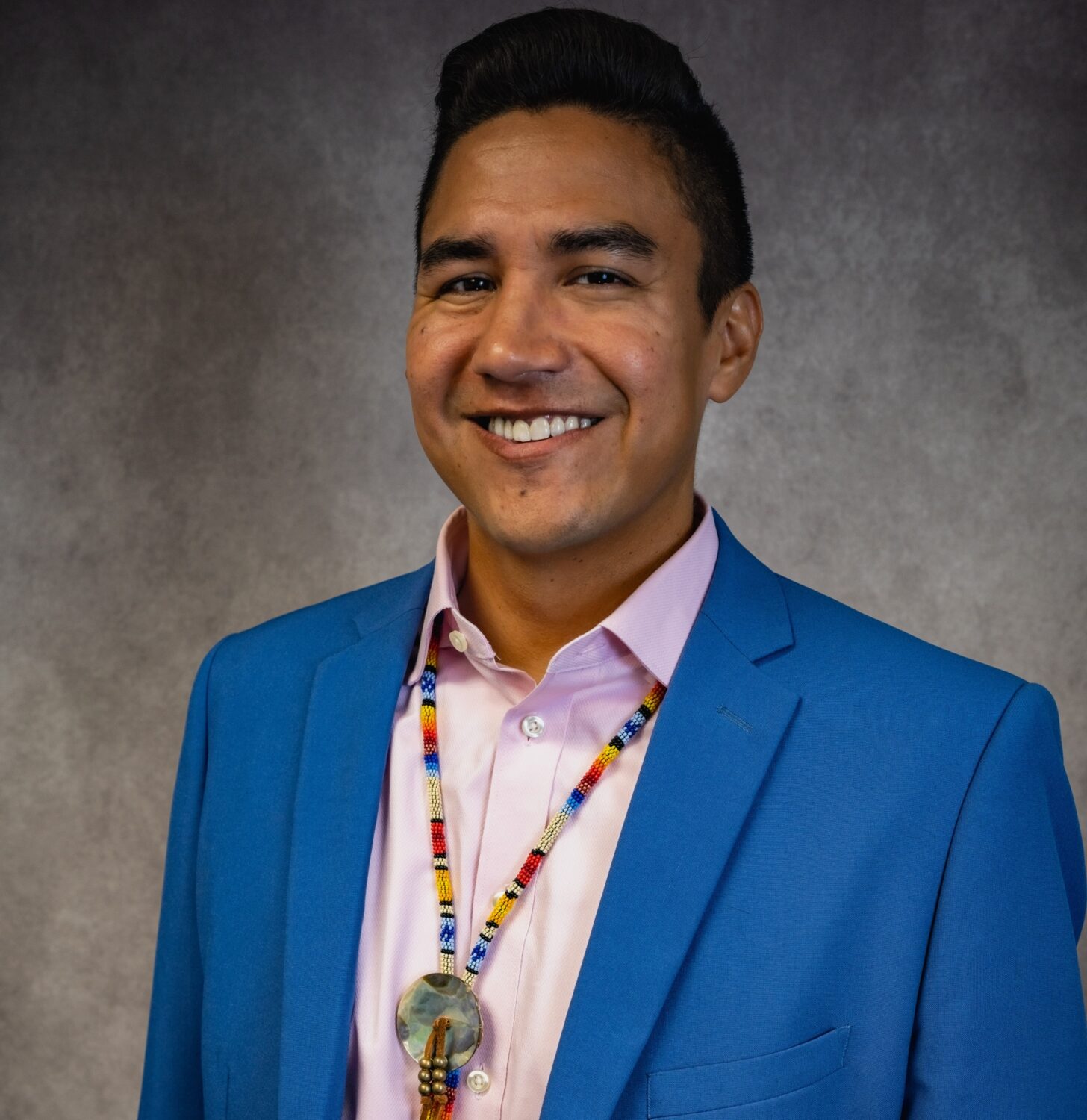
Ryan Crain never imagined he’d be leading one of the most complex departments in tribal government. Yet today, as executive director of the Department of Education for the Ho-Chunk Nation, he oversees six divisions serving learners from early childhood through adulthood, all while working to rebuild a cultural foundation disrupted by centuries of trauma.
He was also recently named vice president of the Seven Rivers Alliance, which promotes economic growth among Indigenous people in Wisconsin, Iowa and Minnesota, and joined the board of the Wisconsin Indian Education Association.
Crain, who was named one of Wisconsin’s Most Influential Native American Leaders earlier this year, said the day-to-day can revolve around typical bureaucratic issues, but he sometimes gets to remember what it’s all about.
“Every once in a while, I get to go read a book to a classroom or host a classroom that comes out to our tribal office building,” he said. “Those are the things I really enjoy.”
Crain oversees everything from Head Start centers to tutor services, adult education to cultural arts programming. But his ambitions stretch even further.
“We actually don’t have an education code, which is pretty unique for a government not to have,” he said. “I think that’s part of that framework that will allow me to start moving towards our own school.”
Efforts to establish a Ho-Chunk-run K-12 school have come and gone over the past two decades, but have stalled due to changing political winds.
“It always seems to fall apart before they actually break ground and have some real plans in place,” Crain said. “New (tribal) administrations don’t have the same vision as the last one.”
Even though the nation doesn’t have a school of its own, its education department is responsible for the nation’s children. Keeping tabs on those kids is a major part of Crain’s job.
“We had to have relationships with hundreds, literally hundreds, of superintendents,” he said. “That’s probably one of the most difficult parts of my job.”
That part of the job has Crain dealing with some stark disparities. “The disproportionate level of discipline that is done on to our students, especially those who are dealing with some disability… compared to general public, any other racial demographic.”
Crain’s own journey through education wasn’t easy. “You rewind back to my dad going to prison (when I was) 4, my mom dealing with alcohol and drugs… I was in emergency homes and group homes and foster homes,” he recalled, and ran away from home at 11. “Thankfully, I have an older brother who was 17 who started taking care of me.”
He credits tribal education programs for helping him forge a different path. “Everything that the nation has done for me has gotten me to this point,” he said. “That’s what I want all these younger kids… to realize. You have the opportunity.”
Many of the young people Crain serves face challenges similar to those he once did. “A majority of them, we don’t know where they’re going to be at in a couple months… if they’re with Gaaga (grandmother), one of their Nąąnį (mother or sister), or Jaaji (father or brother), or with their actual family,” he said. “There’s not a lot of nuclear families that we have, unfortunately.”
Crain believes the solution to many educational challenges lies partly in restoring cultural knowledge. “Indigenous ways of learning … is not a book or curriculum. It’s all based off of actual experiences that are lived, storytelling and then experiencing something,” he explained.
“It’s weird that not even 50 years ago, little kids were getting killed for trying to speak their language or practice their traditions in this country,” he added. “They are living in two different worlds and expected to thrive in both of them. It’s really hard when you’re only dipping your toes into each side.”
To try and bridge those worlds, Crain led the development of the Ho-Chunk Nation’s first tribal library — a project that began as a small book nook in his office. “That small, like little nook… became a little bigger… and now it’s in its own location, brick and mortar,” he said.
The library started under a federal grant, but future funding is uncertain as the Trump Administration has slashed funding for the Institute of Museum and Library Services. “All their [IMLS] staff has been put on administrative leave… it might end up becoming on us to take care of that $160,000,” funded by the federal grant, he said. “I’m going to continue to move forward… and I’ll cross that bridge later on.”
Still, Crain finds hope in the young people he serves. “Every single time I interact with them, they inspire me… I see the talent and the care in their eyes,” he said. “There’s a lot of untapped talent. When they apply themselves, it’s just phenomenal.”
He remembers one moment from a campaign forum when he ran for tribal president. “This younger lady… pointed out that all of us were talking about taking and taking… compared to what we’re supposed to give back.”
The question changed the tone of the entire event. “It went into an actual Indigenous forum, not a political forum.”
Crain didn’t win that election, but the newly elected president asked him to stay on in a leadership role — a testament to the value of his work.
“My story is a perfect example,” he said. After all the struggles of his youth, “here I am, with this beautiful life… I can’t believe that this is my life right now.”



